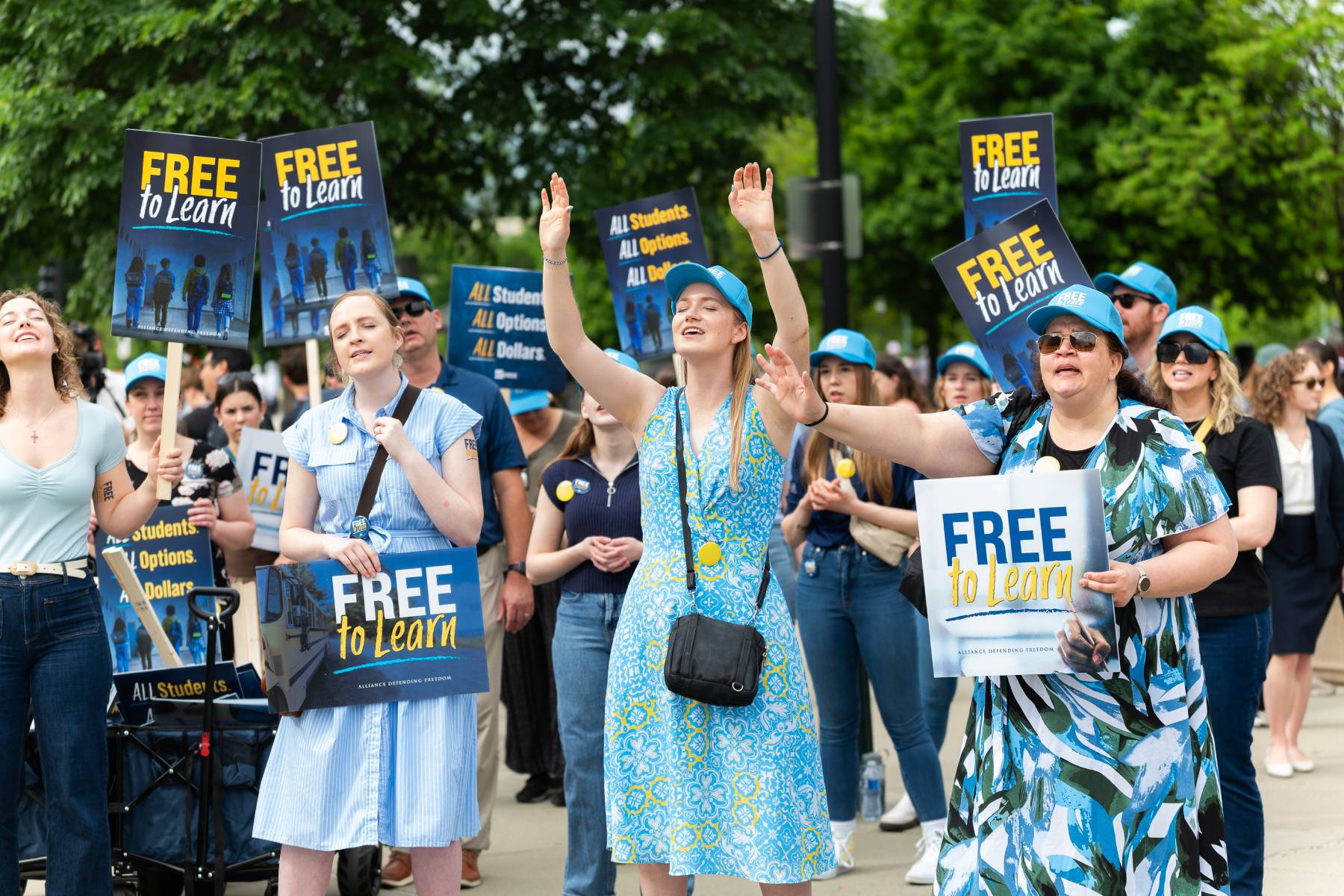One of the most awaited Supreme Court rulings of the year ended in a deadlocked decision that led to triumph for supporters of church-state separation in schools.
On Thursday, the court split 4-4 over a bid to let Oklahoma use taxpayer funds to open what would have been the United States’ first religious public charter school — St. Isidore of Seville Catholic Virtual Charter School.
Justice Amy Coney Barrett, the sole woman represented in the court’s conservative supermajority, did not deliberate in the case. She recused herself, reportedly because she is a good friend of a Notre Dame Law School professor who served as an adviser to the charter school. St. Isidore would have created a Catholic-centric curriculum and been run by the Archdiocese of Oklahoma City and the Diocese of Tulsa. The split ruling, which did not break down how the justices voted, affirms the Oklahoma Supreme Court’s decision last year prohibiting the charter school because its creation would have violated the state and federal constitutions as well as the state charter school statute.
The central question of the case was whether the First Amendment’s religion clauses allow states to open and fund public charter schools with a religious focus. Had the school been allowed to go forward it could have exposed public school students to discrimination on the basis of race, gender, sexual orientation or religion, opponents of St. Isidore argued. They contend that blurring the lines between church and state in schools could introduce students to ideas that engender shame in them about their identities since religious doctrine can be — and has been — interpreted in ways deemed racist, misogynistic and homophobic.
“Charter schools are public schools that must be secular and serve all students,” said Rachel Laser, president and CEO of Americans United for Separation of Church and State, a nonprofit advocacy group, in a statement. “St. Isidore of Seville Catholic Virtual School, which planned to discriminate against students, families, and staff and indoctrinate students into one religion, cannot operate as a public charter school. A religious public school would be an abject violation of religious freedom.”
Leaders of the nation’s two largest education labor unions, the National Education Association (NEA) and the American Federation of Teachers (AFT), issued statements welcoming the outcome of the case. Both groups filed amicus briefs urging the court to reject the effort to create a religious public charter school. Becky Pringle, NEA’s president, said that directing taxpayer funding to St. Isidore would have harmed public education.
For too long, she said, “we have seen anti-public education forces attempt to deprive public school students of necessary funding and support. We are gratified that the Supreme Court did not take the radical step of upending public education by requiring states to have religious charter schools.”
Cari Elledge, fifth-grade teacher and president of the Oklahoma Education Association, said that requiring Oklahoma to fund the charter school programs would have had an adverse impact on classroom resources and educator salaries.
“Funneling funding meant for all to only a select few would have harmed our students and our public schools,” she said.
Randi Weingarten, AFT’s president, said that her organization respects religious education but believes it should be separate from public schooling, which she described as the bedrock of the nation’s democracy.
“Public schools, including public charter schools, are funded by taxpayer dollars because they are dedicated to helping all — not just some — children have a shot at success,” she said.
The Supreme Court’s split ruling “correctly upheld the separation of church and state and backed the founders’ intention to place religious pluralism over sectarianism,” Weingarten continued. “And we are grateful that it upheld the state’s highest court’s clear and unambiguous ruling to preserve and nurture the roots of our democracy, not tear up its very foundations.”
Conservative groups such as the Cato Institute and the Heritage Foundation offered measured responses to the decision despite it not going their way. In a statement, Neal McCluskey, the director of Cato’s Center for Educational Freedom, expressed surprise by how quickly the decision came, as oral arguments just took place in April. He also noted that it was impossible to tell which justices voted in favor or against the charter school
Chief Justice John Roberts “was likely the swing conservative vote, and while this decision does not establish precedent, it potentially sends an important message: the right way to address discrimination against religion by our public education system is through private school choice programs, not charters,” McCluskey said.
Thomas Jipping, a senior legal fellow in the Edwin Meese III Center for Legal and Judicial Studies at The Heritage Foundation, the conservative group behind Project 2025, said the issues the case raised involving the First Amendment’s religion clauses could be resolved through alternative means in the future.
“With no majority and no separate opinions, we can’t know how the justices wrestled with these different options,” Jipping said. “The issues raised here will likely return to the court, perhaps in a case better suited for resolution.”






